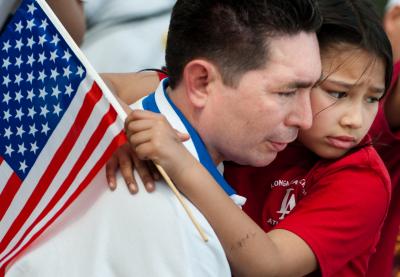When disasters hit, communities respond. We’ve seen it after hurricanes, earthquakes, school shootings and other catastrophes. As members of the “helping profession,” teachers are often among the first to step up, especially when their students are affected.
That desire to help led to our article “This Is Not A Drill,” published in the most recent issue of Teaching Tolerance magazine. In it, we told the stories of educators who had sprung into action when ICE raids separated families in their towns. We also offered a set of steps any educator can take to stand with the undocumented families in their community.
We offered this advice because educators asked us for it.
And we offered it because, as educators, our ethical codes require us to support the well-being of the students in our schools.
And that’s where the letters come in. Here’s the first, from a teacher in Colorado:
“As an educator, I am appalled by what I see in your magazine. … You have gone from being an educational tool to a guide on how to circumvent federal laws and how to commit civil disobedience. Shame on you.”
Let me be clear: We’re not advocating that anyone “circumvent” federal laws, nor did we print a manual for civil disobedience. In fact, in our story and its accompanying toolkit, we presented an array of ways that educators can advocate for families.
We offered support so that educators who disagree with the way these laws are being enforced—or who simply want to help the students and families they serve—can exercise their First Amendment rights to call for change.
In this case, we’re not calling for teachers to commit civil disobedience (we’re not sure what that would even look like under current law); that doesn’t mean that we reject civil disobedience as an appropriate response to unjust laws.
In fact, some of our most popular and valued educational tools, like our films The Children’s March and Selma: The Bridge to the Ballot, celebrate civil disobedience.
There’s nothing shameful about standing up to injustice.
Today we received another letter, one that speaks to what teachers whose students are experiencing family disasters, are coping with:
“I’m looking for resources (in English & Spanish) to help parents know how and what to communicate with their children when the other parent has just been deported. Any help would be greatly appreciated.”
So, Colorado teacher, if helping a father explain a mother’s deportation to a 7-year-old is your idea of shameful, then count me in. We’re proud of the work we do, and we’re not going to stop.
Costello is the director of Teaching Tolerance.
